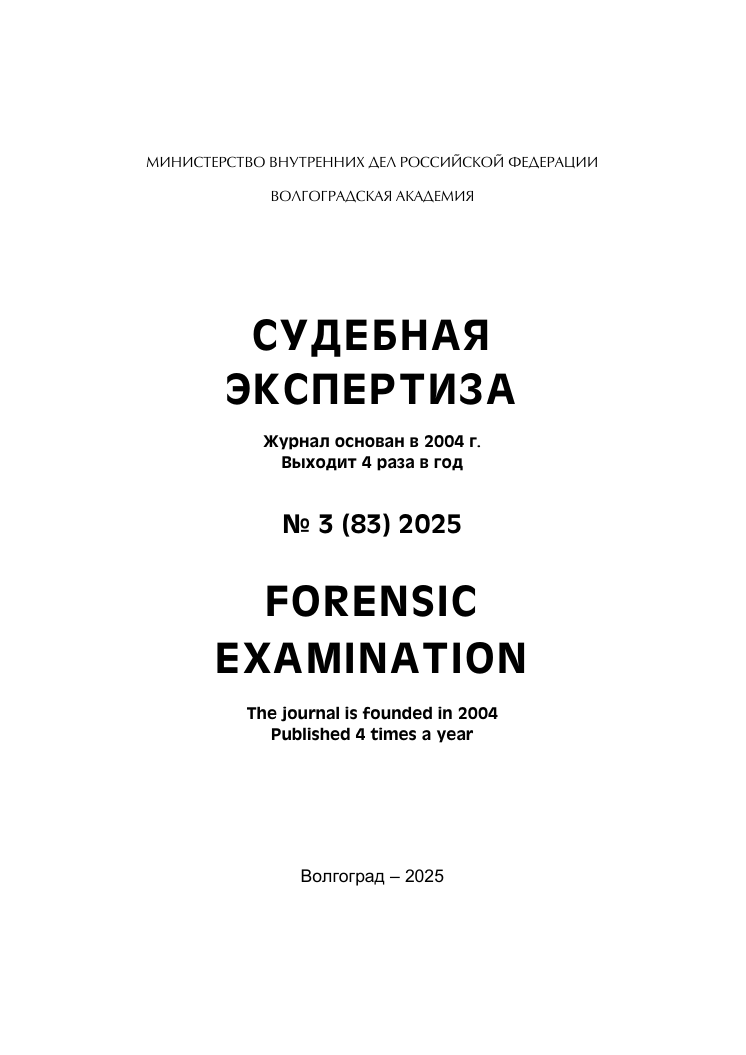employee
Moscow, Russian Federation
The principle of objectivity in forensic examinations, the criteria that make up its content, and the guarantees of its provision are periodically the subject of scientific research. Scientists analyze its various aspects and suggest ways to increase the effectiveness of its implementation. The purpose of the article is to focus on aspects of the principle of objectivity: in relation to the expert and in relation to expert research – forensic examination. Based on the use of comparative legal and formal logical methods, the author reveals the substantive side of each aspect, which can be defined as requirements that constitute the quintessence of the principle of objectivity. The current and future normative regulation of the principle of objectivity in forensic examinations is determined, conclusions are drawn based on the analysis of judicial practice. The author formulates guarantees for the implementation of the principle of objectivity: the formation and standardization of scientific and methodological support for forensic examinations, the formation of a unified "expert language", the improvement of the training of forensic experts, the formation of their competence. Considering the interrelationship of the principles of forensic examinations, the author concludes that there is a need for an integrated approach to the implementation of the principle through the operation of these guarantees.
forensic examination, objectivity, principle, forensic expert, forensic activity, training of forensic expert
1. Draft Federal Law No. 306504-6 "On Forensic Expertise in the Russian Federation" (as amended by the State Duma of the Federal Assembly of the Russian Federation in the first reading on 11/20/2013 // Access from Consultant Plus legal reference system. URL: http://base.consultant.ru (date of reference: 12/21/2020).
2. Dyakonova O. G. Principles of forensic expertise in the light of legislative reform // Principles of criminal justice and their implementation in criminal proceedings: Proceedings of the IV International Scientific and Practical Conference. Moscow: RGUP, 2016. 492 p. 466-474.
3. Mailis N.P. Ethical standards in expert activity // Bulletin of the Moscow University of the Ministry of Internal Affairs of Russia. 2011. No. 9. pp.162-165. pp.163.
4. Zinin A.M. On the problem of validity of expert conclusions during portrait identification // Forensic examination. 2021. No. 3 (67). pp.43-49. pp.47.
5. Dyakonova O. G. Theoretical and methodological validity of some forensic examinations of a humanitarian profile // Actual problems of Russian law. 2024. T. 19. No. 10. pp.157-166.
6. Chesnokova E.V. Conceptual foundations of standardization in forensic expertise: dis. ...Doctor of Sciences (Law). Moscow, 2022. 573 p.
7. Klyusov A.G. Formation of a unified approach to the development of expert methods // Legal science and law enforcement practice. 2024. No. 4 (70). pp. 91-96.
8. Nesterov A.V. Methodology of objectification of forensic expert activity as a factor in increasing the evidentiary value of the results of forensic examination // Theory and practice of forensic examination. 2015. No. 4 (40). pp.166-170. p.168.
9. Alekseenko S.A. On objective control of the judicial examination process // Bulletin of the Krasnodar University of the Ministry of Internal Affairs of Russia. 2024. No. 3 (65). pp.64-67.
10. Dyakonova O.G. On the formation of a private theory of management of forensic expertise // Theory and practice of forensic examination. 2025. Vol. 20. No. 2. pp. 82-91.
11. Panarina D.V. Modern problems and trends in the development of the language of the general theory of forensic examination: dis. ...Candidate of Sciences (Law). Tula, 2018. 238 p.
12. Sedov D.V., Nesmeyanov A.A. On the distribution of responsibility between the driver and the traffic service for damage caused as a result of an accident // Russian justice. 2020. No. 10. pp. 58-60.




